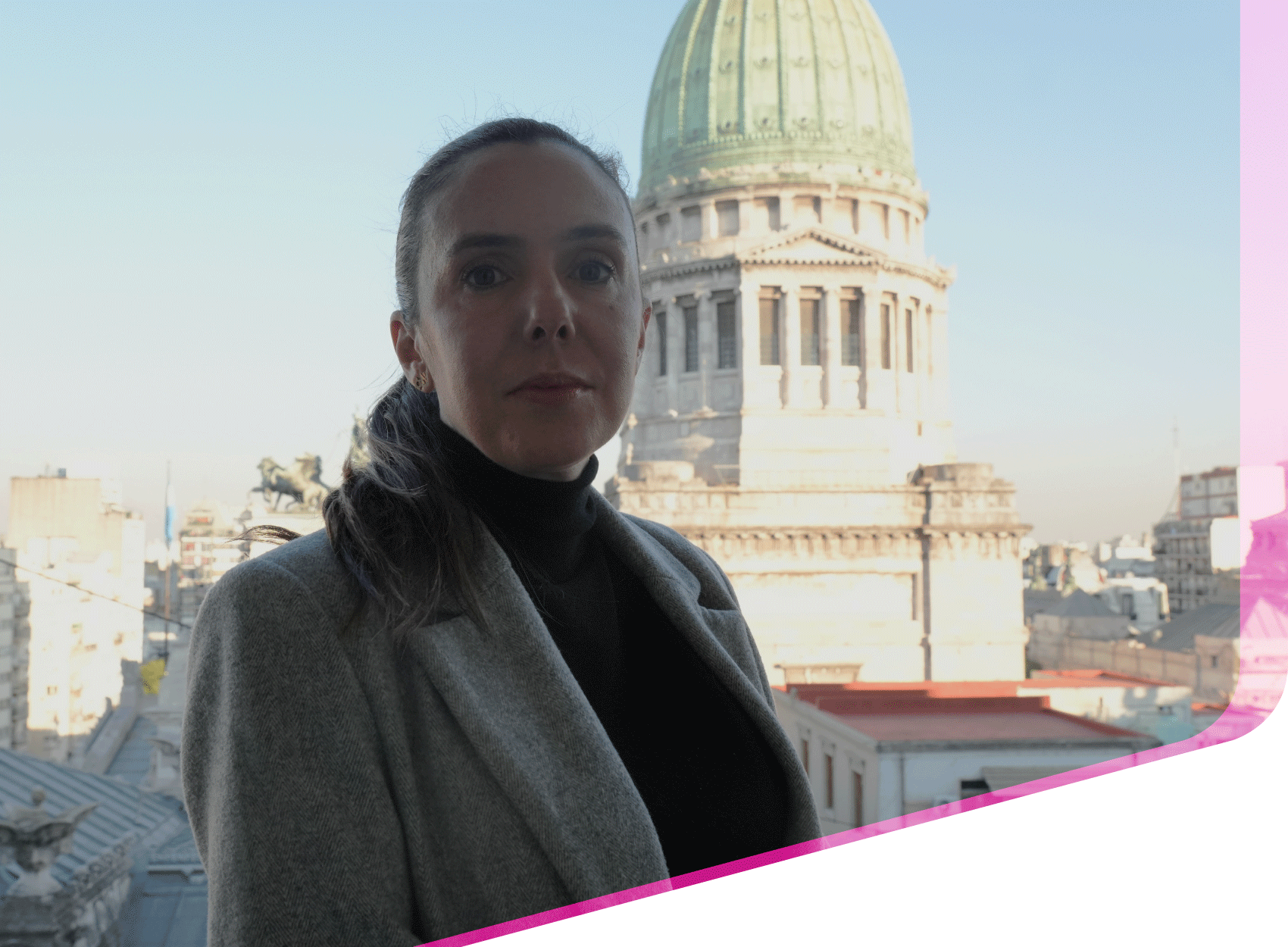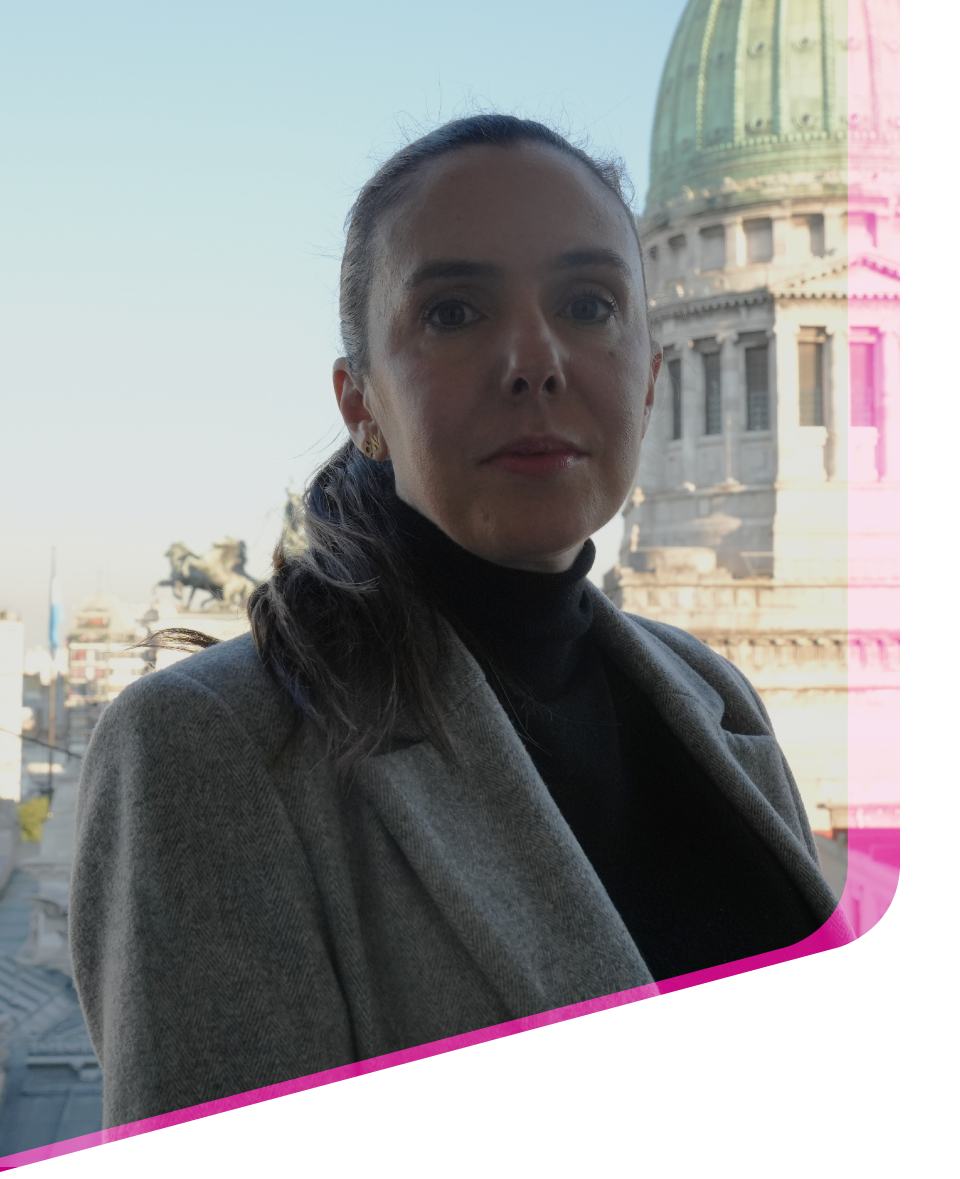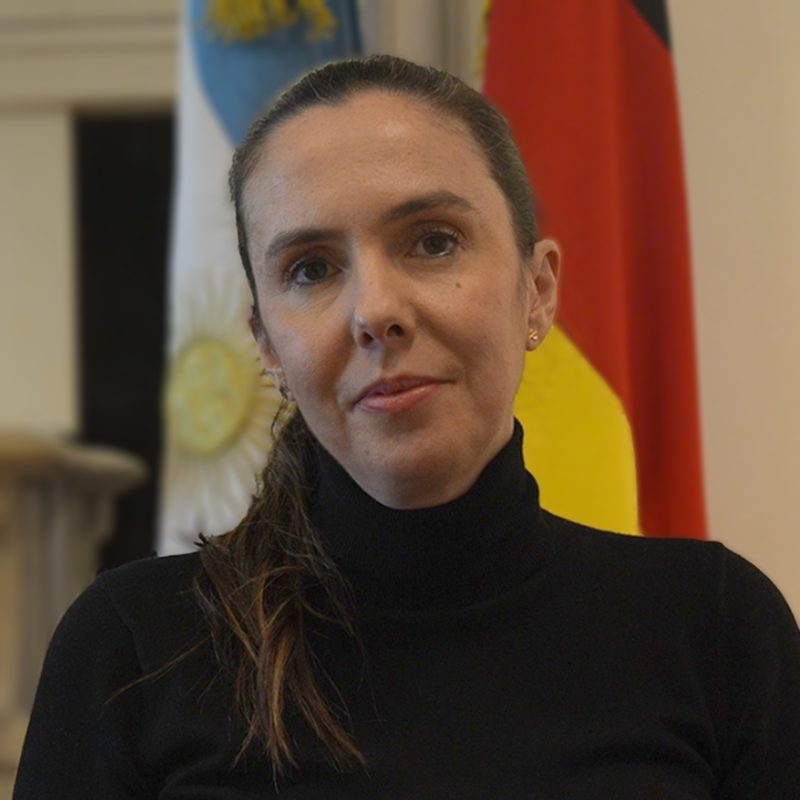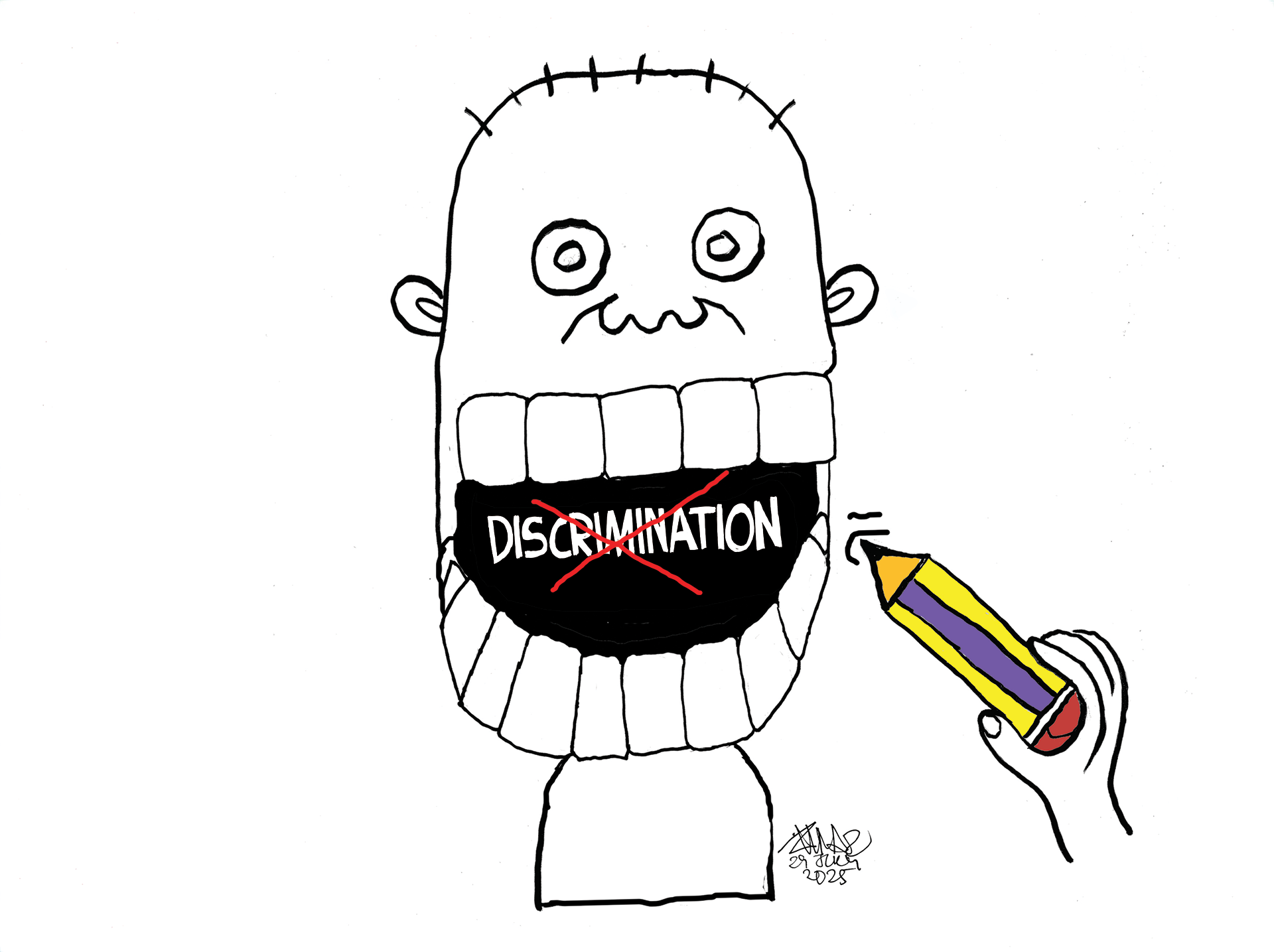
Venezuela/Argentina
Venezuela/Argentina
Venezuela/Argentina
Elisa Trotta Gamus
Elisa Trotta Gamus
Elisa Trotta Gamus
Lawyer and advocate for liberty, democracy, and human rights
Lawyer and advocate for liberty, democracy, and human rights
Lawyer and advocate for liberty, democracy, and human rights

Venezuela/Argentina
Elisa Trotta Gamus
Lawyer and advocate for liberty, democracy, and human rights
“Every day, I work to amplify the voices of victims and survivors of authoritarian regimes.”

VITA
Elisa Trotta Gamus is a Venezuelan-Argentinian lawyer and advocate for liberty, democracy, and human rights. She holds a law degree from the Central University of Venezuela and earned dual master’s degrees in International Sustainable Development and Coexistence and Conflict from Brandeis University, as a Fulbright Scholar. Since relocating to Argentina in 2011, she has led humanitarian and political efforts to support Venezuelan migrants and denounce authoritarian abuses. In 2019, she was appointed Venezuela’s ambassador to Argentina by interim president Juan Guaidó. Elisa is a co-founder of the Alliance for Venezuela and the Argentine Forum for the Defense of Democracy (FADD), bringing together voices from across Argentina’s civil society to defend democratic institutions and human dignity. Deeply inspired by her Jewish identity and the principle of Tikkun Olam (repairing the world), she has also become a leading voice against antisemitism. In response to growing hate speech and attacks, she co-founded the Argentine Forum Against Antisemitism (FACA) in 2023, which has quickly become a key platform for advocacy, education, and solidarity.
What is your current work in human rights?
For the past two decades, I have been committed to exposing human rights violations, promoting democracy, and fighting authoritarianism across Latin America. I began this work as a student in Venezuela and continued in the countries where I have lived since then, including Brazil, the United States, and Argentina, the homeland of my father. Currently, I coordinate and collaborate with several civil society initiatives such as the Argentine Forum for the Defense of Democracy, the Alliance for Venezuela, and the Argentine Forum Against Antisemitism. Through these platforms, I work to expose the crimes committed by authoritarian regimes in the region, defend freedom of expression, support victims of political persecution, and promote the integration of migrants and refugees. In short, I work to defend human rights, strengthen democracy where it exists, and help restore it where it does not.
As a Venezuelan-Argentinian, what experiences shaped your path as a democracy and human rights activist in Latin America?
I come from a country devastated by an authoritarian regime that dismantled institutions, persecuted dissidents, and turned the justice system into a tool of repression. I witnessed firsthand the pain of the victims, the hopelessness of those who fled, not knowing if they would ever return. I also witnessed the courage of those who continued to resist despite everything. Being part of the exile and later officially representing Venezuela in Argentina left a lasting mark on me. I realized that the fight does not end with complaints; we must build bridges, raise awareness, weave networks, and never stop speaking out. Since then, this commitment has guided both my professional and personal life.
You have denounced both authoritarianism and antisemitism. What connects these struggles, and why are they important to you?
The common thread is the defense of human dignity. Both the Chavista tyranny and antisemitism are rooted in hatred, intolerance, and the dehumanization of others. In Venezuela, I saw how a criminal regime justified its actions through propaganda and persecution. In Argentina and around the world, we see how antisemitism grows amidst polarization and hate speech, often fueled by ignorance and resentment. Both struggles demand civic courage, historical memory, and collective action. I face them with the conviction that we cannot be selective when defending rights: wherever there is injustice, there is a shared cause.

What initiatives have you led to expose abuses and seek justice? Whose voices are you amplifying?
Every day, I work to amplify the voices of victims and survivors of authoritarian regimes. Through the platforms I lead, we run awareness campaigns, organize public events, file international complaints, publish reports, and coordinate actions with human rights organizations and affected individuals. We give voice to those silenced by persecution – political prisoners, mothers seeking justice, migrants forced to leave their homes. Our focus is on those who suffer the most from authoritarianism and impunity. And this is not just about communications – although that is essential – it’s also about legal action. For example, through the Argentine Forum for the Defense of Democracy (FADD), where I serve as Secretary-General, we succeeded in having Argentina’s judiciary issue arrest warrants under universal jurisdiction against Nicolás Maduro, Diosdado Cabello, and dozens of other regime members for crimes against humanity.
In a context of growing authoritarianism, what threats do you face as an activist and what strategies help you move forward?
Being a human rights activist today means facing smear campaigns, digital threats, political pressure, and surveillance. But none of this compares to what those resisting from within dictatorships must endure. My strategy is to never give in. Having a support network, being surrounded by committed teams, and forming alliances with other organizations have been key to continuing. I must say that in recent years, one of my greatest sources of strength and inspiration has been seeing how many people share the same values and aspirations for freedom, democracy, and justice. They are far more than one might imagine.
What do you expect from international support?
From the international community, I expect coherence, active solidarity, and sustained pressure. There is no more urgent struggle than the defense of freedom and human rights – and that must be a global priority.
Venezuela/Argentina
